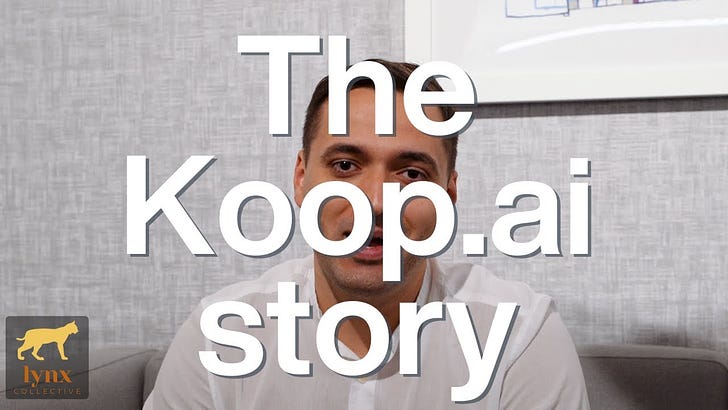Koop's mission to protect the world from a new generation of risks
A founder profile on Koop's Co-Founder & CEO Sergey Litvinenko and his journey from traffic tickets to compliance
Sergey Litvinenko is the Co-Founder and CEO of Koop, a platform enabling tech companies to satisfy the compliance, security and insurance requirements of their customers and investors. In this interview Sergey talks about his journey, starting Koop, raising money from an impressive list of VCs including AlleyCorp, Ubiquity Ventures, Bee Partners, and Hyundai Motor Group, and his best advice for early stage founders.
How did you get the idea for Koop?
Koop’s journey began in a very different space in 2017 when Sergey, frustrated by reckless drivers during frequent trips between Boston and New York, envisioned a system for reporting bad drivers and earning rewards. He developed a concept for a machine-learning-powered camera that would issue digital traffic tickets, but privacy concerns and regulatory challenges forced a shift in direction. That experience opened their eyes to a different problem: the gap in available insurance providers for the emerging market of autonomous vehicles. Today, Koop solves that and related issues for a broader set of customers, serving as a "Customer Assurance Platform," simplifying compliance, security, and insurance for tech companies in one user-friendly solution.
How does the product work?
Koop is a "Customer Assurance Platform" that consolidates and automates compliance, security, and insurance processes for tech companies. It is designed for companies with up to $100 million in revenue, especially those without dedicated teams for these functions. The platform offers a more efficient and cost-effective solution compared to traditional legacy systems. By using Koop, companies can establish trust when selling to enterprises, raising capital, or partnering with major organizations.
When did you know you had something special?
There were two pivotal moments in the company's journey: the "felt moment" and the "measured moment." The “felt moment” occurred last year when customers immediately responded positively to a brief pitch, often expressing enthusiasm without seeing a full demo. Over time, customers sent feedback, saying Koop had significantly impacted their businesses, helping them to enter new markets and saving substantial amounts of money. The “measured moment” came this year, as Koop balanced rapid growth, strong customer retention, healthy margins, and low loss ratios, positioning the company for further success and future fundraising.
Tell us about your fundraising journey
Koop was bootstrapped for the first year and a half, with the founders investing their life savings. Wanting to scale quickly, they aimed for venture capital, knowing it would bring growth pressure but also require giving up equity and control. In 2021, they raised their first round of funding after building a functional platform and signing early customers. Ubiquity Ventures was a key investor, aligned with their vision of enabling tech companies to launch new products.
In 2023, Koop raised a second round of $4.5 million, with AlleyCorp and Eliot Horowitz of Viam Robotics) leading the round. Their involvement came through an introduction by existing customers in his portfolio, which impressed their lead, partner Abe Murray, enough to invest.
What is your advice for fundraising Founders?
One valuable lesson is to balance fundraising and company building. Sergey emphasizes that a company should either be fully focused on fundraising or entirely on building the business. When fundraising, it should be treated as a full-time job, using all available resources to secure investment. Once fundraising is complete, the focus should shift entirely to product development, commercialization, and growth, without being distracted by investors. Early on, while bootstrapping, they were constantly reaching out to investors, which felt unproductive. Learning to separate fundraising and building modes helped maintain focus and efficiency.



